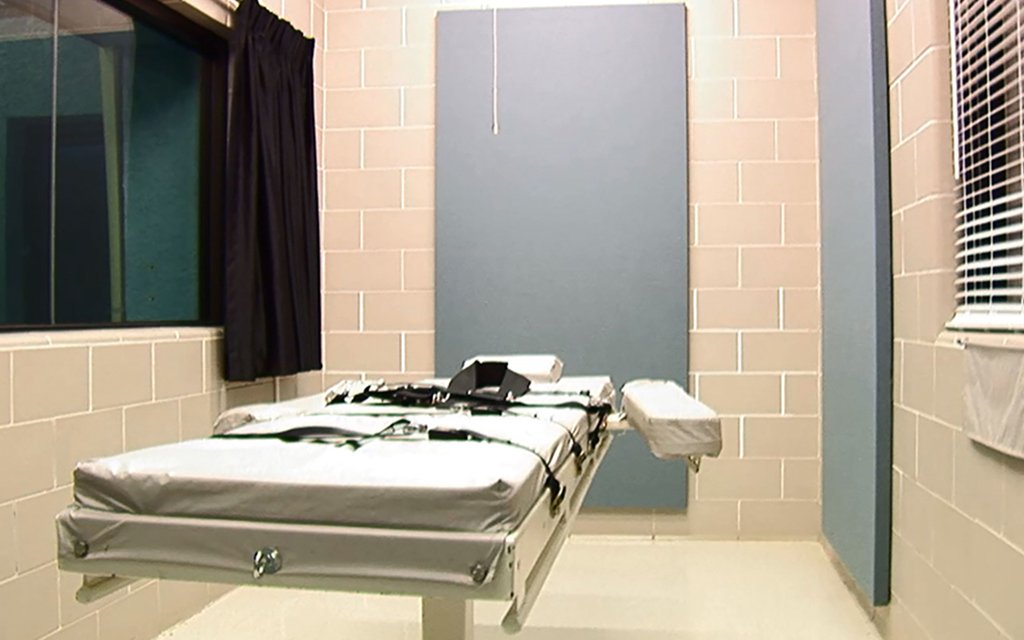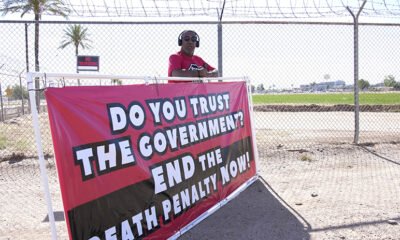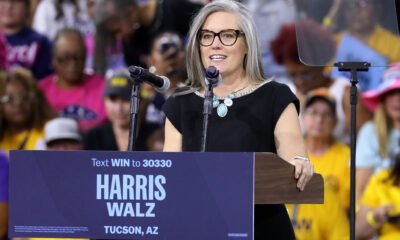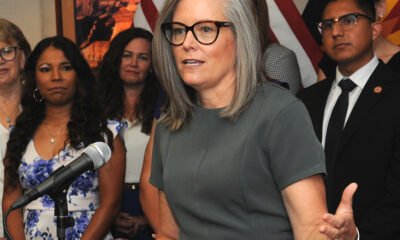Aaron Gunches
Death Penalty Opponents Demand Hobbs Release Suppressed Independent Report

Advocacy groups have urged Arizona Governor Katie Hobbs to complete and make public an investigation into the state’s death penalty practices. This call comes in the wake of several botched executions in recent years.
In January 2023, following an execution that raised significant concerns, Hobbs issued an executive order to establish a Death Penalty Independent Review Commissioner. The goal was to examine how the Arizona Department of Corrections, Rehabilitation & Reentry (ADCRR) has handled executions. The review aims to address flaws in execution procedures that have been highlighted in past incidents.
Arizona’s recent history with lethal injections is troubling. Joseph Wood faced a prolonged execution lasting over two hours in 2014, while Clarence Dixon’s execution in 2022 involved serious complications, including staff needing to place an IV line in his groin. Such incidents have led to widespread scrutiny of Arizona’s execution methods.
To lead the review, Hobbs appointed retired federal Magistrate Judge David Duncan, commencing in September 2023. Duncan’s preliminary findings noted the challenges the state has faced in sourcing lethal injection drugs and pointed to a troubling culture of secrecy surrounding execution protocols.
In his draft report, Duncan stated, “This impenetrable cloud of secrecy that cloaks the execution process is a byproduct of the desire and legislative command to protect the identity of the executioner.” He criticized the lack of transparency that contributes to erroneous practices in lethal injections.
Duncan’s investigation included interviews with approximately 40 to 50 participants in the execution process and a review of tens of thousands of records from the ADCRR. Among his findings were concerning memos related to research on lethal injection drugs and compensation details regarding execution staff.
Despite his thorough investigation, Duncan’s request to interview executioners personally and observe execution protocols was denied by the ADCRR. The draft report suggested that the firing squad could offer a more humane alternative to lethal injection, a method currently banned by state law.
However, late in November, Hobbs terminated Duncan’s contract, opting for an internal review by ADCRR’s Director Ryan Thornell instead. In her communication to Duncan, Hobbs expressed a lack of confidence in his ability to deliver a report aligned with her initial executive order. The administration has provided limited access to Duncan’s draft report, withholding it from public view.
During a press conference held at the state Capitol, advocates voiced their concerns. Jared Keenan of the ACLU of Arizona emphasized that Hobbs and Attorney General Kris Mayes had previously acknowledged the need for an independent review due to doubts about the state’s capacity to conduct humane executions. The decision to dismiss Duncan’s independent investigation has raised alarm among advocacy groups.
Duncan’s unfinished draft concluded that “lethal injection is not a viable method of execution in actual practice.” Its anticipated completion was initially set for this month, but the internal review may have shifted priorities within the administration.
With the independent review now terminated, the Hobbs administration has seemingly cleared a path for resuming executions of the 111 individuals currently on Death Row. The case of Aaron Gunches is one of the first likely to proceed. Convicted in 2002 for the murder of Ted Price, Gunches has faced a tumultuous legal history, including a brief period where he sought to expedite his execution.
Recent developments have led Mayes to request another execution warrant for Gunches, signaling potential actions in the near future. Advocates for reform continue to call for transparency, with concerns centered on the reliability of the state’s assurances regarding execution practices.
Defense attorney Katie Gipson-McLean articulated the sentiments of many when she stated, “Governor Hobbs, the Department of Corrections, and Attorney General Mayes are saying, ‘Trust us.’ That’s not good enough. We insist on proof.”


















